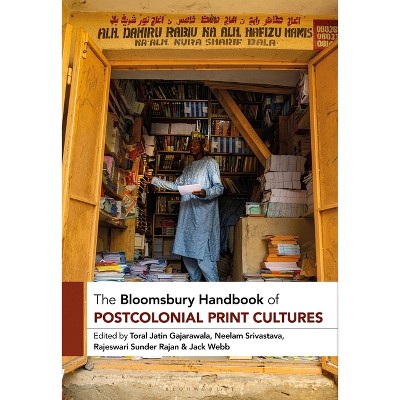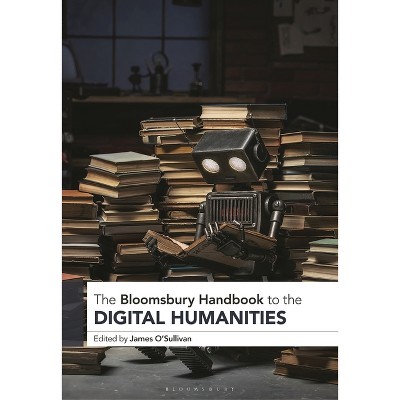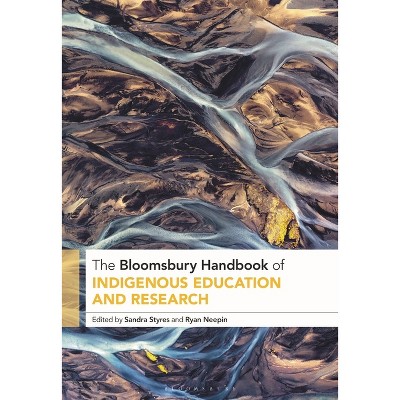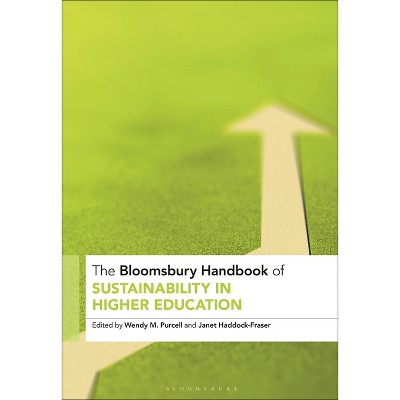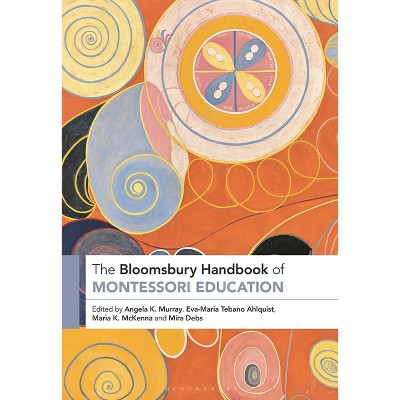The Bloomsbury Handbook of the Philosophy of the Historical Sciences and Big History - (Bloomsbury Handbooks) by Aviezer Tucker & David Cernín

About this item
Highlights
- This handbook examines the philosophy of the historical sciences and their synthesis in concepts like Big or Deep History.Written by interdisciplinary philosophers, historians, and scientists, it acts as a valuable guide for anybody interested in scientific knowledge of the deep past, Big History, and the philosophy of science.
- About the Author: Aviezer Tucker is the Director of the Centre for the Philosophy of Historiography at the Department of Philosophy of the University of Ostrava in the Czech Republic.
- 528 Pages
- History, Historiography
- Series Name: Bloomsbury Handbooks
Description
About the Book
"This handbook examines the philosophy of the historical sciences and their synthesis in concepts like Big or Deep History. Written by interdisciplinary philosophers, historians, and scientists, it acts as a valuable guide for anybody interested in scientific knowledge of the deep past, Big History, and the philosophy of science"-- Provided by publisher.Book Synopsis
This handbook examines the philosophy of the historical sciences and their synthesis in concepts like Big or Deep History.Written by interdisciplinary philosophers, historians, and scientists, it acts as a valuable guide for anybody interested in scientific knowledge of the deep past, Big History, and the philosophy of science.The Bloomsbury Handbook of the Philosophy of the Historical Sciences and Big Historyis the first philosophical reference work to recognize that History is not what it used to be: the historical sciences, Deep History, Big History, and even the history of the Anthropocene have now expanded the scope of historiography beyond that of literate civilizations to cover all scientific inferences about the past, from the Big Bang through the history of the planet and the history of life to the history of humanity. Different views about the scope of History have ontological, epistemic, methodological, explanatory, ethical, and educational reasons and implications. The historical sciences and the knowledge they have generated are founded on theories of knowledge of the past, epistemology of history. The contributions in this book consider whether there are common epistemic properties to all the historical sciences that distinguish them from non-historical or theoretical sciences.
The first part of the handbook examines the recent expansion of the scope of the historical sciences in Big History, natural history, global history, and environmental history, and older broader concepts of history like universal history and philosophy of history. The second part of the handbook addresses the ontology and epistemology of the past, including the basic concepts of the historical sciences such as origins, the end of history, determination and underdetermination, contingency and necessity, historical predictions and counterfactuals, and historical pseudoscience. The third part examines the philosophies of the special historical sciences, historical linguistics, textual criticism, geology, evolutionary biology, systematics, archaeology, cosmology, history of the environment, and most significantly, their integrations and combinations - for example, how genetics, archaeology, and historical linguistics have generated a whole new knowledge of deep human history.
This collection offers an overview of what the philosophy of the historical sciences is and is becoming for students and experts alike.
Review Quotes
Drawing on state-of-the-art ontology and epistemology, the editors and authors succeed impressively in deepening our understanding of the 'long' past, while avoiding to fall back into pseudoscientific speculation à la Herder, Hegel, or Spengler. The wide-ranging handbook can be recommended across disciplines to anyone interested in 'deep time' and the prospects of a scientific historiography.
Dr. Oliver R. Scholz, Professor, University of Muenster, Germany
Philosophers of science have paid far too little attention to investigations of the deep past, and philosophers of history to the methodologically omnivorous, interdisciplinary beast that the study of human pasts has become. This collected volume finally put both discussions firmly on the map by pulling together work from philosophers and scientists, covering everything from the universe's first few seconds to just about yesterday. It's About Time.
Adrian Currie, Associate Professor of Philosophy, Egenis, University of Exeter, UK
The essays in this volume are from individuals with diverse philosophical orientations. Taken together, they will help readers appreciate the rich multi-dimensionality of philosophy of the historical sciences.
Elliot Sober, William F. Vilas Research Professor Emeritus, University of Wisconsin-Madison, USA
About the Author
Aviezer Tucker is the Director of the Centre for the Philosophy of Historiography at the Department of Philosophy of the University of Ostrava in the Czech Republic. His publications include Historiographic Reasoning (2024) and Our Knowledge of the Past: A Philosophy of Historiography (2004), as well as numerous articles and reviews about the philosophy of historiography and the philosophy of science. He also edited A Companion to the Philosophy of History and Historiography (2009). He taught or held research positions at the Central European University, Palacky University, Columbia University, New York University, Trinity College, Long Island University, the Australian National University, Queens University, the Max Planck Institute for the History of Science, the University of Cologne, the University of Texas in Austin, and Harvard University.
David Cernín is an Assistant Professor in the Department of Philosophy at the University of Ostrava, Czech Republic and a member of the university's Centre for the Philosophy of Historiography. He has published on topics including historical realism and anti-realism, intellectual history, and history education. His most recent co-authored book, History Education between Science and Narration (published in Czech as Dejepis mezi vedou a vyprávením), was published in 2023 and partly explored the educational potential of Big History.





